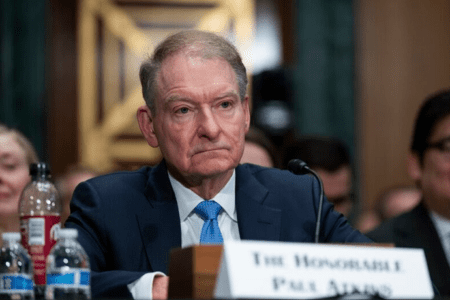The U.S. Department of Justice (DOJ) has disbanded its National Cryptocurrency Enforcement Team (NCET), a unit established under the Biden administration to combat illicit crypto activity. Deputy Attorney General Todd Blanche announced the immediate dissolution in an April 8 memo, criticizing the prior administration’s “reckless strategy of regulation by prosecution” and asserting that the DOJ “is not a digital assets regulator.”
Policy Shift and New Enforcement Priorities
Going forward, digital asset-related investigations will be decentralized, with U.S. attorneys’ offices nationwide handling cases focused on crimes tied to terrorism, drug trafficking, human smuggling, hacking, and organized crime. Prosecutors have been instructed to close ongoing crypto cases that do not align with these priorities, marking a stark departure from the Biden-era emphasis on using criminal enforcement to shape crypto policy.
The DOJ memo explicitly directs prosecutors to avoid charging cryptocurrency exchanges, mixing services, or wallet providers for user misconduct or “unintentional regulatory infractions.” Charges for unregistered money transmission or securities violations will now require proof of intentional wrongdoing. Additionally, the Market Integrity and Major Frauds Unit—previously active in crypto enforcement—will halt all related actions and refocus on immigration and procurement fraud.
Trump’s Pro-Crypto Agenda
This policy shift aligns with President Donald Trump’s broader efforts to foster a crypto-friendly regulatory environment. Key initiatives include:
- Executive Order 14178: Signed in January 2025, this order revoked Biden-era crypto policies, opposed central bank digital currencies (CBDCs), and established a framework for a “national digital asset stockpile” to bolster U.S. leadership in blockchain technology.
- Strategic Bitcoin Reserve: Announced in March 2025, this initiative centralizes federal crypto holdings (including Bitcoin, Ethereum, and others) into a “digital Fort Knox” managed by the Treasury.
- Regulatory Rollbacks: The SEC has dismissed high-profile crypto cases, eased guidance on securities enforcement, and formed a “Crypto Task Force” to redefine regulations.
Trump’s administration has also courted industry support, appointing crypto advocates like venture capitalist David Sacks as “Crypto and AI Czar” and accepting significant campaign donations from major exchanges. Meanwhile, the Trump family has launched crypto ventures, including a decentralized bank (World Liberty Financial) and meme coins, raising ethical concerns about conflicts of interest.
Implications for the Crypto Industry
The DOJ’s retreat from aggressive enforcement signals reduced regulatory risk for exchanges and developers, potentially accelerating innovation and institutional adoption. However, critics warn that narrowed enforcement could enable bad actors exploiting decentralized technologies. As the U.S. pivots toward becoming a “crypto capital,” global markets—particularly in Europe—may face pressure to adapt their regulatory frameworks to compete.





